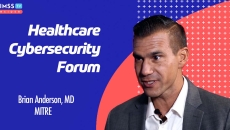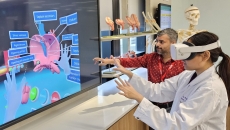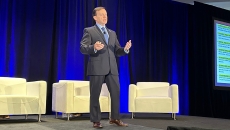Artificial Intelligence
A report from Bain and KLAS sees 80% of chief information officers and other tech leaders boosting their investments in software and digital tools. They've got rev cycle and clinical workflows top of mind, but their AI plans are still coming into focus.
There are cybersecurity risks posed by smart medical devices, but most people would not be a target of such attacks, said Dr. Benoit Desjardins, professor at the University of Pennsylvania Medical Center.
Fifteen projects, including eight digital health initiatives, received $3 million in cash, Google Cloud credits and technical assistance.
Collaboration among health systems, vendors and regulators is critical to help guide the development and use of artificial intelligence in healthcare, says Dr. Brian Anderson, chief digital health physician at MITRE.
As it works to safeguard existing cybersecurity protocols from easy decryption by a future quantum computer, the agency is requesting feedback on standards for three algorithms designed to withstand quantum-powered cyberattacks.
This is the hospital’s fourth HIMSS digital maturity model accreditation.
Also, Philips APAC has a new managing director.
Also, Genea runs an integrated surgery management system powered by Clintel's CareRight.
"Nurses cannot be everywhere at once," says one expert in video monitoring, who sees promise in "watching AI" helping overworked RNs track patterns in hospital patients over longer periods of time to gain insights into their health trajectory.
At the HIMSS Healthcare Cybersecurity Forum, AHA cyber risk advisor John Riggi said health systems need to prepare now for clinical and operational contingencies as high-impact ransomware attacks increase.








